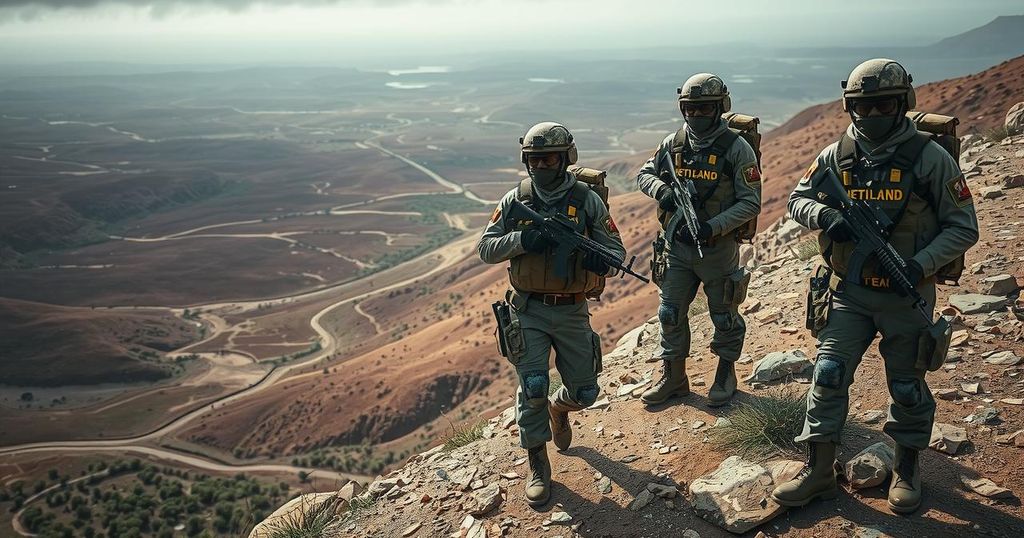Uganda Deploys Troops to South Sudan Amid Rising Civil War Fears
Uganda has dispatched special forces to South Sudan to support the government amidst fears of civil war due to tensions between President Salva Kiir and his deputy, Riek Machar. The deployment reflects ongoing political instability and violence in the region, dating back to their civil war that began in 2013. Both leaders continue to face pressure to implement peace agreements and address failing reforms ahead of the 2026 elections.
The recent deployment of Ugandan special forces to South Sudan aims to safeguard the government of President Salva Kiir amid escalating fears of civil war. This action, confirmed by Maj. Gen. Felix Kulayigye, the Ugandan military spokesperson, is a response to potential rebel advances threatening the capital, Juba. Kulayigye emphasized that these forces are not engaged in peacekeeping but are there as support for the South Sudanese government.
Ugandan President Yoweri Museveni’s decision to send troops reinforces his role as a guarantor of peace between Kiir and his deputy, Riek Machar, highlighting the fragile state of South Sudan’s political unity. Notably, Museveni has intervened before to maintain Kiir in power, and this recent deployment signifies a critical moment amidst ongoing political tensions.
As South Sudan grapples with instability, heightened tensions are evident following violence in the northern regions, where government forces clashed with the White Army, a rebel faction allied with Machar. A recent incident involving a UN helicopter resulted in casualties during a military evacuation, exacerbating the situation. Following these events, government forces have surrounded Machar’s residence, further aggravating the political crisis.
The relationship between Kiir and Machar remains contentious, with disputes regarding recent government dismissals feeding animosity. Kiir has asserted that his administration can manage the crisis while striving for peace, despite the tumultuous backdrop of a previously devastating civil war that erupted in 2013.
Since gaining independence in 2011, South Sudan has faced continuous conflict exacerbated by ethnic divisions. Efforts to restore peace included a 2018 peace agreement that allowed Machar to return but did not resolve the fundamental rivalries between its leaders, complicating efforts for implementation and anticipated elections in 2026 amid both domestic and international pressures for reform.
The deployment of Ugandan special forces to South Sudan illustrates the deteriorating stability in the nation, where longstanding political rivalries threaten to reignite conflict. With pressures mounting from both domestic and international communities, the need for effective governance and adherence to peace agreements remains critical for averting a humanitarian crisis and fostering genuine reconciliation between South Sudan’s leaders.
Original Source: www.newsday.com




Post Comment